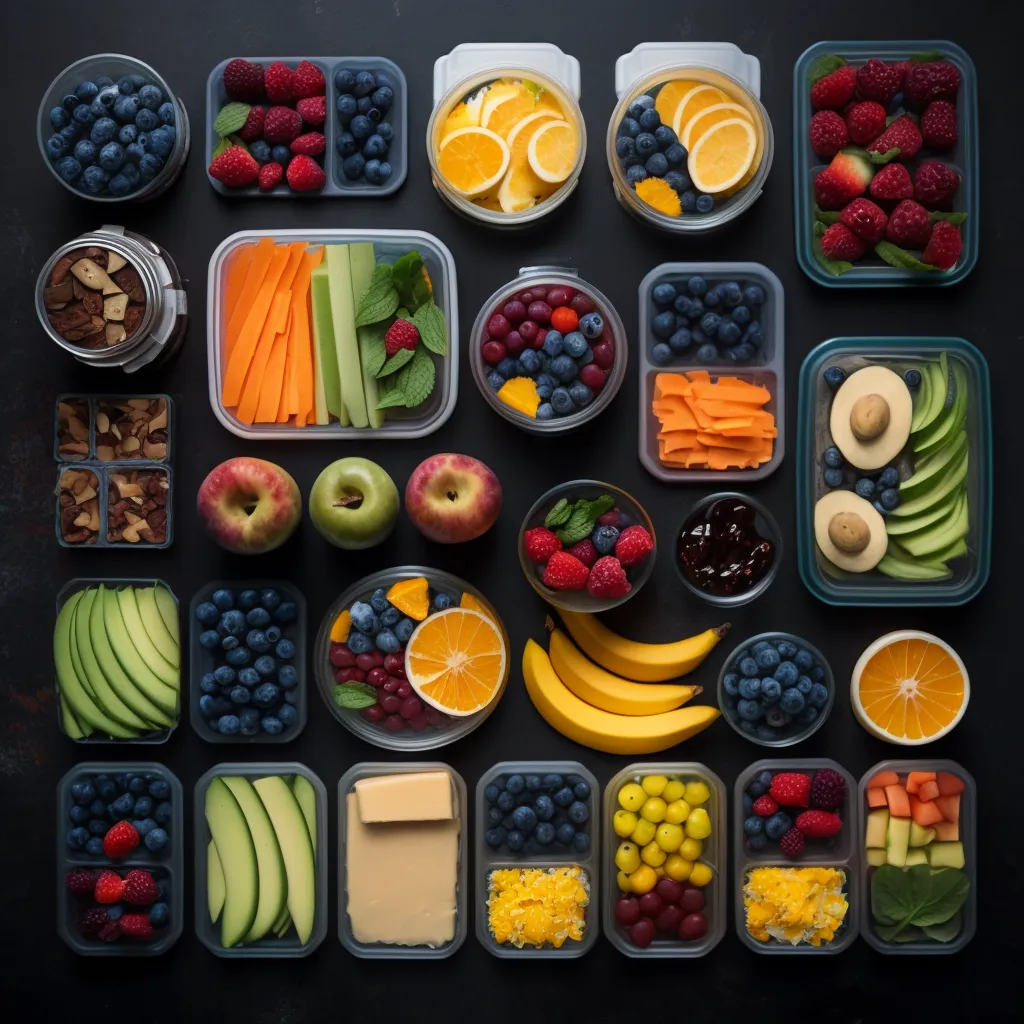🧑🍳RecipesWhy Meal Planning is Essential for a Healthy Lifestyle
Discover the importance of meal planning in achieving a balanced and nutritious diet, as well as tips for beginners on how to start meal planning and stick to it.

Meal planning is a crucial part of a healthy lifestyle, yet it’s often overlooked. Many of us resort to eating on-the-go or ordering takeout because we don't have time to plan meals. However, with a little effort, meal planning can become a habit that will improve your overall health and wellbeing.
Here are a few reasons why meal planning is essential for a healthy lifestyle:
1. Achieve a Balanced and Nutritious Diet
Meal planning helps you make intentional and mindful choices about what you eat. When you plan your meals in advance, you can ensure that your diet is balanced and includes all the essential nutrients your body needs. You can also incorporate a variety of foods, including fruits, vegetables, lean proteins, and whole grains.
2. Save Time
One of the biggest advantages of meal planning is that it saves time. When you plan your meals in advance, you don't have to spend time figuring out what to cook each day. You can also prep meals in advance, which can save you time during busy weeknights.
3. Reduce Food Waste
Meal planning can also help you reduce food waste. When you plan your meals, you can buy only the ingredients you need, which reduces the chances of throwing away unused food. You can also use leftovers from one meal to create another, which saves you money and reduces food waste.
4. Save Money
Meal planning can also help you save money. When you plan your meals, you can buy ingredients in bulk and take advantage of sales and discounts. You can also avoid expensive and unhealthy takeout meals by cooking at home.
Now that you understand why meal planning is essential for a healthy lifestyle, let's talk about how to start meal planning:
1. Set Realistic Goals
Start by setting realistic goals. If you're new to meal planning, don't try to plan a month's worth of meals at once. Start with planning meals for a week and gradually increase the duration as you get comfortable with the process.
2. Create a Meal Planning System
Create a meal planning system that works for you. Some people prefer to plan their meals using a planner or spreadsheet, while others use meal planning apps. Find a system that works for you and stick to it.
3. Choose Simple Recipes
Choose simple recipes that are easy to prepare, especially if you're new to cooking. Look for recipes that use a few ingredients and require minimal prep time. You can also choose recipes that can be made in large batches and frozen for later.
4. Plan for Leftovers
Plan for leftovers by making extra portions of your meals. You can use leftovers for lunch the next day or freeze them for later. This can save you time and money in the long run.
5. Shop Smart
Shop smart by making a grocery list before you go to the store. Stick to your list and avoid buying unnecessary items. You can also buy ingredients in bulk and take advantage of sales and discounts.
In conclusion, meal planning is essential for a healthy lifestyle. It helps you achieve a balanced and nutritious diet, saves time, reduces food waste, and saves money. By setting realistic goals, creating a meal planning system, choosing simple recipes, planning for leftovers, and shopping smart, you can start meal planning and stick to it. Give it a try and see how meal planning can improve your health and wellbeing.





